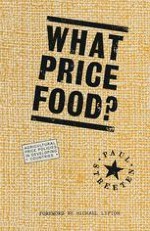1987 | OriginalPaper | Chapter
The Balance of Payments Constraint
Author : Paul Streeten
Published in: What Price Food?
Publisher: Palgrave Macmillan UK
Included in: Professional Book Archive
Activate our intelligent search to find suitable subject content or patents.
Select sections of text to find matching patents with Artificial Intelligence. powered by
Select sections of text to find additional relevant content using AI-assisted search. powered by
Many developing countries suffer from balance of payments difficulties. Some spend much money on imported food and become dependent on it, and in the case of many African countries the prices and the supply of export crops have declined, although the prices of food imports have declined as much as the prices of their exports. Foreign exchange is very important to agriculture, first, because it often buys some of the inputs into agriculture and some of the consumer goods on which farmers spend their income, and, second, because an overvalued exchange rate is an implicit tax on agricultural exports and income. Many authors regard this as the most important instrument by which agricultural growth is discouraged in economies in which agriculture is an important sector. Thus Malcolm Bale concludes a study of five typical developing countries by saying that ‘the implicit taxation of agriculture through an overvalued exchange rate appears to be the single most powerful disincentive to agriculture in the five developing countries examined’. (These were Colombia, Jamaica, Nigeria, Pakistan and the Philippines.)1 The poorest countries are still heavily dependent on the export of agricultural products. We have already discussed the dilemma that may arise when agricultural crops for export compete, in the allocation of scarce resources, with food crops for domestic consumption.
